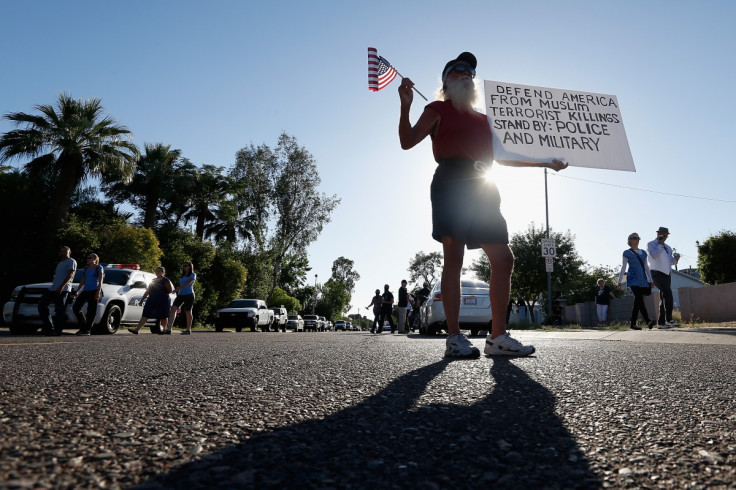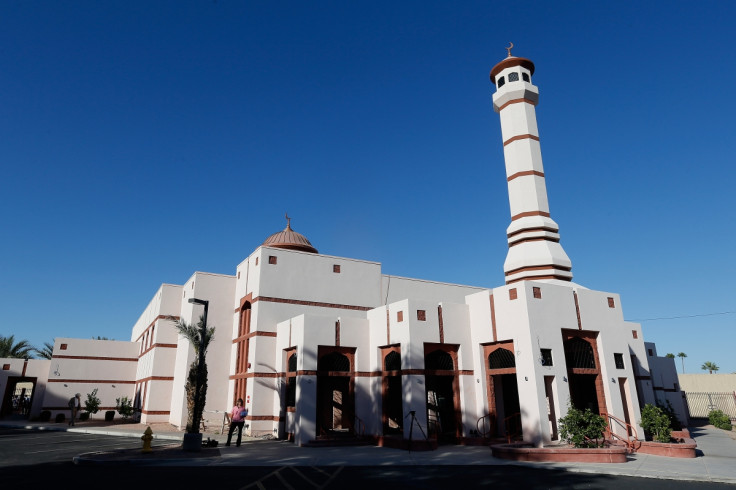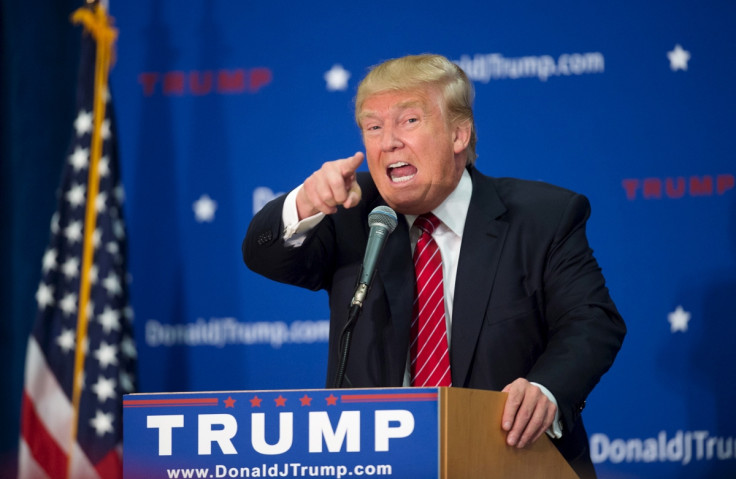Anti-Muslim rallies and US presidential race create 'perfect storm of Islamophobia'

A series of anti-Muslim rallies have been planned at mosques and other Islamic sites across the US this weekend, fuelling fears of rising Islamophobia in the country. The rallies are the latest in a spate of anti-Muslim protests and rhetoric in the US, indicative of a worrying trend which experts say is getting increasingly worse.
Ibrahim Hooper, national communications director of the Council on American-Islamic Relations (CAIR), says there has been a "tremendous rise" in anti-Muslim sentiments in America in the last couple of years.
"There is a well-funded network of anti-Muslim activists and groups, who are actively promoting Islamophobia," Hooper says. "Couple that with the atrocities carries out by Isis and incidents overseas and it is a perfect storm of Islamophobia. Unfortunately I think it is only going to get worse as we approach the presidential election, as the right-wing of the political spectrum has obviously decided that Islamophobia should be a plank in their political platform."
"It really is going off the chart. We have anti-Muslim rallies at mosques around the country this weekend, Muslim-free-zone businesses, and the Government is basically doing nothing about it – despite pleas to enforce the law, which prohibits excluding people based on their faith," said Hooper.
Anti-Muslim rallies and violent rhetoric
The upcoming rallies, organised to take place on 9 and 10 October, appear to originate from a Facebook page called "Global Rally for Humanity" which claims "humanity is attacked daily by radical Islam" and encourages protests in "every country at every mosque". Hooper says the threat of violence towards Muslim communities is such that CAIR has warned religious leaders to be vigilant and take extra safety precautions.
"It seems to be a loose coalition of extreme right-wing Islamophobes and Tea Party types. Normally we would ignore these groups and not give them the free publicity they seek, but there has been so much violent rhetoric associated with these groups and individuals and with this whole rally campaign that we felt we had an obligation to warn Muslim community leaders about the potential for violence. Some have said they will come armed and as we saw in the Phoenix rally, protesters came with assault weapons," said Hooper.
Around 250 anti-Muslim protesters gathered outside Phoenix's Islamic Community Center in May, among whom more than a dozen men in military clothing carried semi-automatic weapons. The rally was organised by an Iraq war veteran who posted photos of himself online wearing a T-shirt with a slogan vilifying Islam. A further 250 people attended the rally to oppose the anti-Muslim activists.

Political rhetoric fuels hate as US election looms
As well as a rise in individuals and groups targeting mosques and other Islamic institutions, Hooper says as a spokesperson for a Muslim civil rights organisation, he has received an increasing number of threats and hate messages. The problem is fuelled by anti-Muslim sentiments echoed by senior US politicians, says Hooper.
In the presidential race, Republican candidates Donald Trump and Ben Carson have made distinctly anti-Islamic comments. Following a recent campaign event in Rochester, New Hampshire, Trump was criticised for failing to challenge or correct an audience member who said: "We have a problem in this country, it's called Muslims. We know our current President is one."
Last week, Carson came under fire for his remark to NBC that he "would not advocate" a Muslim becoming president. Referring to criticism of his comment, he later told ABC a Muslim president would have to "subjugate" his beliefs.
Perhaps even more worrying is that Carson's views, far from being throwaway comments, are supported by a number of US voters. In a poll of a few hundred Republican primary voters in North Carolina, 72% of respondents said a Muslim should not be allowed to be president and 40% said Islam should be illegal in the US.
Politicians responsible for inciting violent hate crimes
Mark Potok, a senior fellow at the civil rights non-profit organisation Southern Poverty Law Center says: "Anecdotally, a trend we are seeing is increased crimes directed at Muslims and increased hatred – that is very plain. It is very much in the public sphere where these things often originate. It is people like Ben Carson saying that a Muslim cannot be president. It is no surprise to see those things translate into criminal hate violence."
History has shown such remarks made by US politicians have dire consequences. Speaking at a town hall meeting in 2012, Republican congressman for Illinois Joe Walsh said Muslims were "trying to kill Americans" and claimed Islamic radicals were living in Chicago's suburbs. Violence erupted days later: shots were fired into a packed mosque, an acid bomb was launch into a Muslim school, and a cemetery was vandalised with anti-Islam slogans and racial slurs.
"We found very clearly over the years a connection between the kind of talk we are hearing from Carson and Trump and hate violence," Potok says. "What has really opened the spigot for anti-Muslim hatred are comments from politicians like this. These are men who give permission to Americans to viscerally hate Muslims and the entire religion of Islam. It is increasing fear in order to pander to the extreme elements of a political space and it is costing all of us, particularly the Muslim community in America."

Muslim profiling and hate crimes
Shortly before Trump and Carson's comments, a 14-year-old Muslim boy from Irving, Texas, was arrested for bringing a homemade clock into school sparking claims of racial and religious profiling. Ahmed Mohamed, a budding engineer, was handcuffed after his teacher reported the device looked like a "movie bomb" and suspended from school for three days.
The Dallas suburb had been in the spotlight in February, prior to Mohamed's arrest, when mayor Beth Van Duyne wrote a Facebook post saying she would look into a "Shariah law court" set up by an Irving mosque, which turned out to be an tribunal operating in the Dallas-Fort Worth area for "intra-community arbitration" within the faith community. In March, Van Duyne was lambasted for backing a state bill dubbed the "anti-Sharia law" which prohibits judges from using foreign law in their rulings. Critics say the law added to "anti-Islamic hysteria" and unfairly targeted Muslims.
Although religious tensions have not reached the levels of racial tension evidenced in the number of shootings of unarmed black men by police officers, the number of hate crimes targeting Muslims is still concerning.
There are no recent statistics for the number of anti-Muslim hate crimes reported, but the FBI's Uniform Crime Reports Program states that of the 1,233 victims of anti-religious hate crimes in the US in 2013, 13.7% were victims of anti-Muslim bias. Muslims made up the second-largest group targeted, behind Jewish people, who accounted for more than 60% of all religion-orientated hate crimes.
Prior to the September 11 attacks, between 20 and 30 anti-Muslim hate crimes were reported annually, but in 2011, the number soared to nearly 500. In the years since, the figure has remained between 100 and 150 per year – five times the rate prior to 9/11.
© Copyright IBTimes 2025. All rights reserved.






















